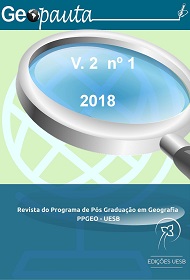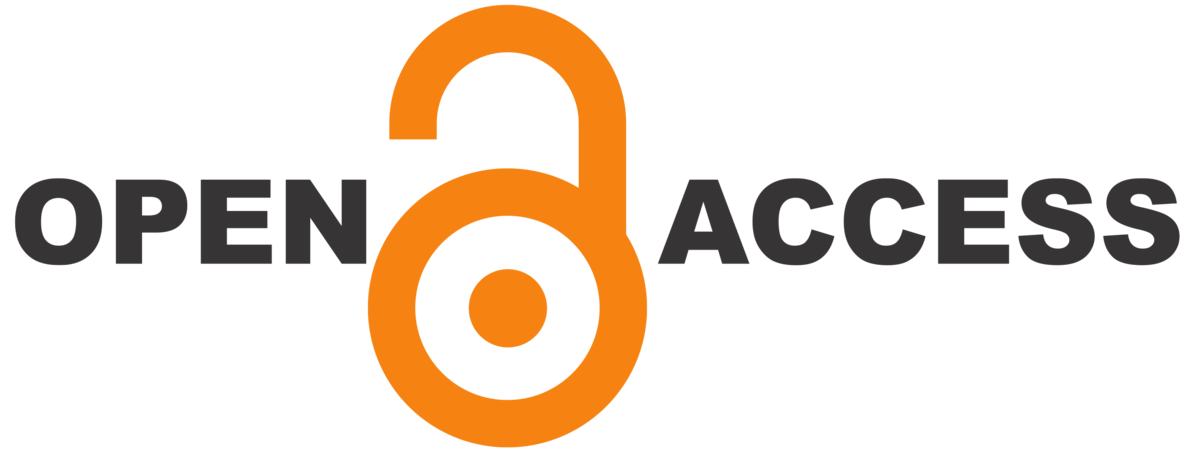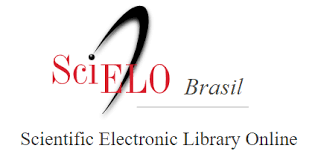O ENSINO DE GEOGRAFIA E A APRENDIZAGEM SIGNIFICATIVA NOS ANOS INICIAIS
DOI:
https://doi.org/10.22481/rg.v2i1.3858Palavras-chave:
Aprendizagem Significativa. Ensino de Geografia. Geografia do cotidiano.Resumo
A aprendizagem é um processo inerente ao aluno que deve assumir a função de questionar, dialogar e aprender. Com os avanços tecnológicos, a sociedade tem passado por transformações que resultam em práticas pedagógicas e construção de novos saberes. Na escola, a Geografia traz uma leitura de mundo aos educandos privilegiando a relação sociedade e natureza. Este artigo tem por objetivo compreender como acontece a aprendizagem significativa nos anos iniciais a partir do ensino de Geografia e baseia-se nas ideias de Straforini (2001), Ponthuscka (2007), Freire (1996), dentre outros. A aprendizagem é considerada significativa quando se relaciona com os outros conceitos e suposições relevantes, disponíveis na mente do estudante, no qual servem de suportes para que sejam introduzidas novas aprendizagens.
Downloads
Referências
CASTELLAR, Sonia Maria Vanzella. Educação geográfica: a psicogenética e o conhecimento escolar. Cad. Cedes, Campinas, vol. 25, n. 66, p. 209-225, maio/ago. 2005. Disponível em <http://www.cedes.unicamp.br> Acessado em: 11/08/2017
CASTROGIOVANNI, Antonio Carlos (org.), CALLAI, Helena Copetti, KAERCHER, Nestor André. Ensino de Geografia: práticas e textualizações no cotidiano. 10. ed. – Porto Alegre: Mediação, 2012.
CAVALCANTI, Lana de Souza. Formação de Professores: Concepções e Práticas em Geografia. Goiânia: Editora Vieira, 2006.
CORRÊA, Roberto Lobato. Espaço: um conceito-chave da geografia. In: CASTRO, Iná Elias, GOMES, Paulo César da Costa, CORRÊA, Roberto Lobato (orgs.) Geografia: Conceitos e Temas. 5ª edição. Bertrand: Rio de Janeiro, 2003.
FREIRE, P. Pedagogia da Autonomia: saberes necessários a prática educativa. 25ª Ed. São Paulo: Paz e Terra, 1996.
FREITAS, Eliane Sermidi; SALVI, Rosana Figueiredo. A ludicidade e a aprendizagem significativa voltada para o ensino de Geografia. Londrina, Universidade Estadual de Londrina, 2007.
GOULART, Beatriz Ligia. O que afinal um professor dos anos iniciais precisa saber para ensinar Geografia? Percursos, Florianópolis, v. 13, n. 02, p. 08 – 19, jul./dez. 2012. Disponível em <http://www.revistas.udesc.br/index.php/percursos/article/view/2763> Acessado em: 25/08/2017.
MENDES, G. F. Memórias, discursos e representações sociais: um olhar para os 25 anos do Curso de Geografia da UESB. Vitória da Conquista: Edições UESB, 2011.
PELIZZARI, Adriana; KRIEGL, Maria de Lurdes; BARON, Márcia Pirih; FINCK, Nelcy Teresinha Lubi; DOROCINSKI. Teoria da Aprendizagem Significativa segundo Asubel. Rev. PEC, Curitiba, v.2, n.1, p.37-42, jul. 2001-jul. 2002.
PONTUSCHKA, Nídia Nacib (et al.). Para ensinar e aprender Geografia. São Paulo: Cortez, 2007.
SELBACH, S. Geografia e Didática. Petrópolis, RJ: Vozes, 2010.
STRAFORINI, Rafael. A totalidade mundo nas primeiras séries do ensino fundamental: um desafio a ser enfrentado. Terra Livre, São Paulo, v.1, n.18, p. 95-114, jan/jun. 2002.
Downloads
Publicado
Como Citar
Edição
Seção
Licença
Copyright (c) 2020 Geopauta

Este trabalho está licenciado sob uma licença Creative Commons Attribution 4.0 International License.
Dos Direitos Autorais
Os autores mantêm os direitos autorais de forma irrestrita e concedem à Geopauta a primeira publicação com o trabalho simultaneamente licenciado em CC BY, que permite que outros compartilhem com reconhecimento da autoria de cada autor na publicação inicial nesta revista.
Propriedade Intelectual e Termos de uso
A Geopauta adota a política de Acesso Livre em Conformidade com o Acesso Aberto- OAC recomendado pelo DOAJ e em conformidade com os Critérios SciELO, sob uma licença Creative Commons CC By Attribution 4.0 International License, permitindo acesso gratuito imediato ao trabalho e permitindo que qualquer usuário leia, baixe, copie, distribua, imprima, pesquise ou vincule aos textos completos dos artigos, rastreie-os para indexação, passe-os como dados para software ou use-os para qualquer outra finalidade legal.
A Geopauta atribui a licença CC BY. onde é permitido sem restrições:
Compartilhar — copiar e redistribuir o material em qualquer suporte ou formato para qualquer fim, mesmo que comercial. desde que lhe atribuam o devido crédito pela criação original.
Adaptar — remixar, transformar, e criar a partir do material para qualquer fim, mesmo que comercial desde que lhe atribuam o devido crédito pela criação original.













